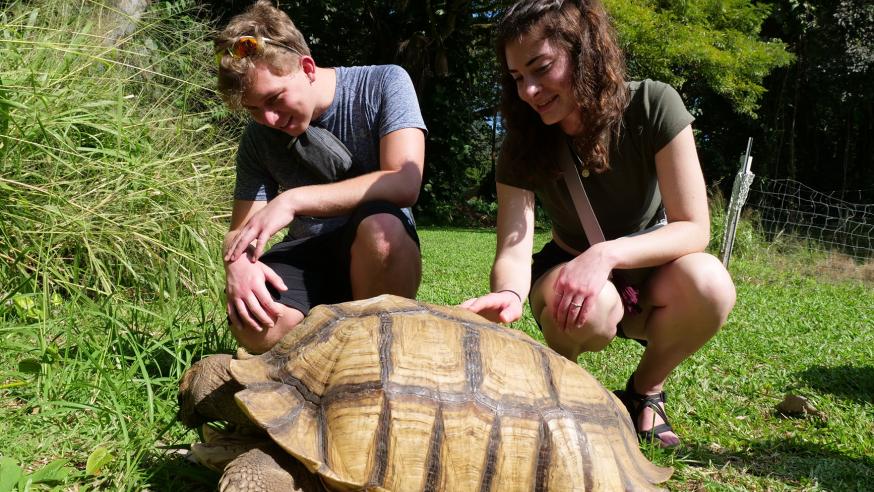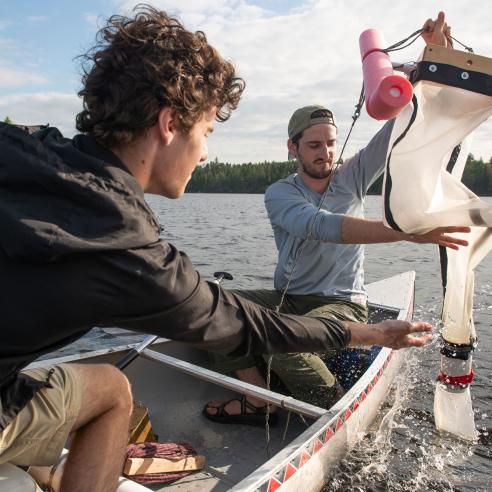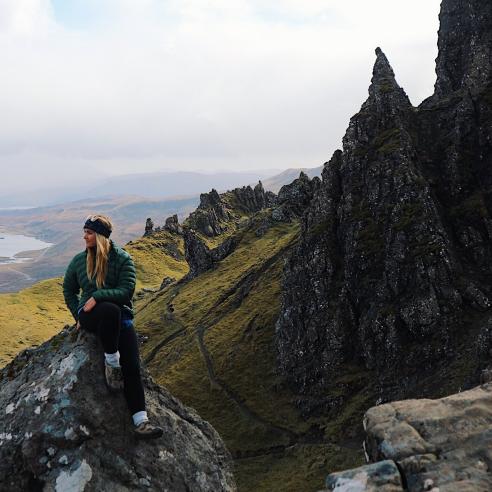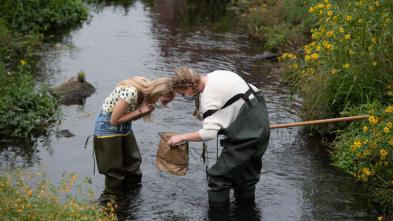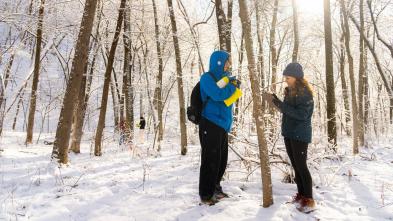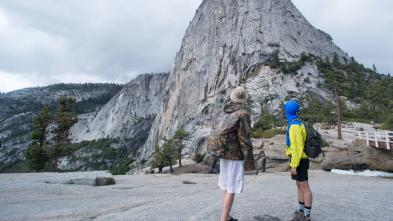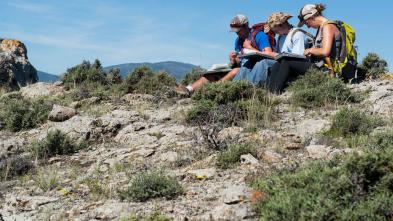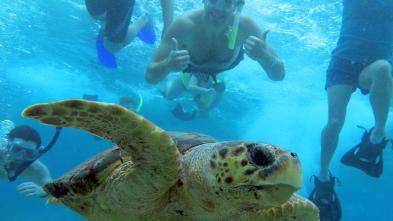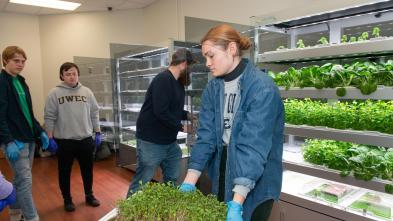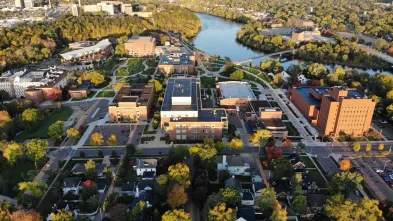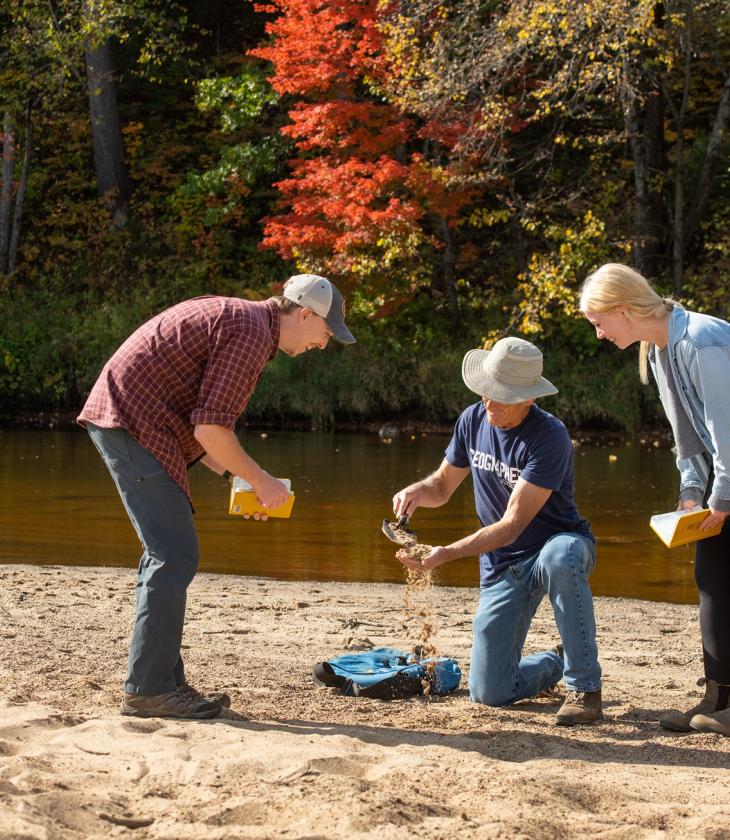
Environmental Science
Explore issues including environmental conservation, natural resources, biodiversity, and planetary impacts through multiple scientific fields.
Explore Biological Diversity and Environmental Conservation
The environmental science minor emphasizes the study of environmental issues, ecology and conservation, and water and earth resources. Rooted in experiential, outside-the-classroom learning, you'll explore fascinating topics like aquatic ecology, water resources, and biostatistics.
A capstone course allows you to take your studies to the field and explore new areas, like the Rocky Mountains. Environmental science minors are also encouraged to study abroad, intern, and participate in the National Student Exchange for access to even more environmental courses and experiences.
An excellent complement to a major in biology, ecology and environmental biology, political science, environmental geography, geology - environmental science, or environmental public health, this minor provides endless opportunities for growth. Graduates go on to become valuable assets to a multitude of companies, agencies, and entities, due to their broad environmental knowledge and sustainability insights. The minor also provides many personal benefits, giving you clear direction on ways you can positively impact our environment and those around you.
Program Details
Blugold Stories
Justthe
facts
Courses in the environmental science minor will highlight the complex relationships between environmental issues and society. Using a multidisciplinary approach, you will study environmental topics through a selection of elective courses of interest to you. A focus on real-world curriculum will provide you with opportunities to go into the field and address issues regarding the conservation of biological diversity and natural resources.
Here are a few courses in Environmental Science at UW-Eau Claire.
BIOL 180
Environmental Biology and Conservation
An introduction to natural resource conservation. Problems associated with the use and abuse of America's resources are studied in an ecological framework. Resource management methods are explored.
BIOL 321
Ecology
Core concepts and theories in ecology at the individual, population, community, and ecosystems levels and their applications.
BIOL 490
Biological Field Studies
Extended travel to study field biology. Students record notes and data in the field and submit final written and/or oral reports. Field identification quizzes may also be required.
Get More Info
Sign up to receive additional information about our campus.
Meet the Faculty


